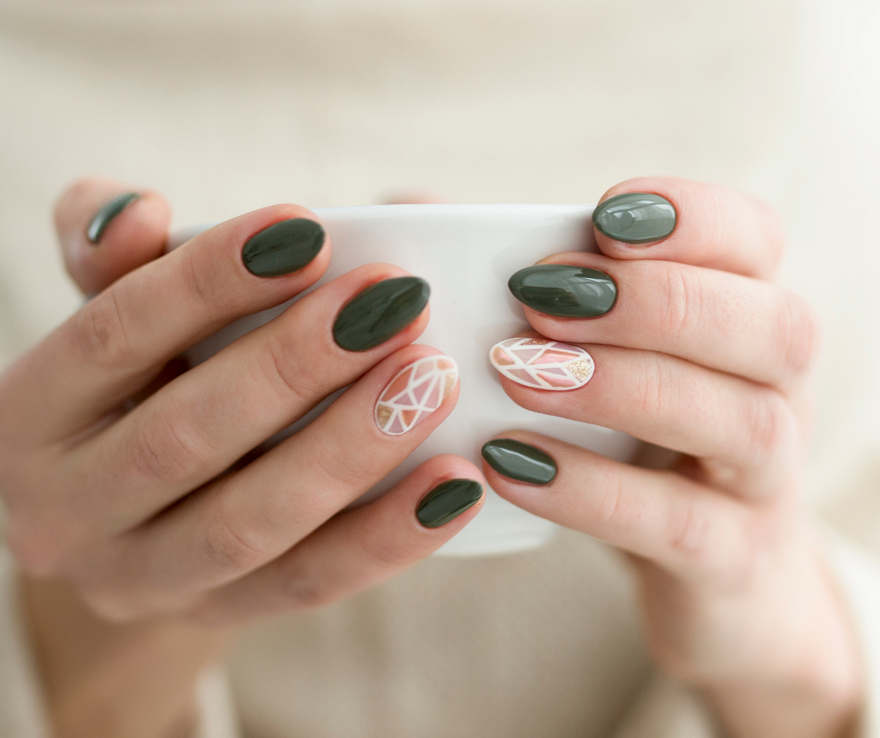Focus on Rhythms, Not Resolutions This New Year

As 2021 comes to a close and a new year stretches before us, New Year’s Resolutions rise to the top of people’s minds. We find ourselves asking, “What can I do to be healthier this year than last?” “What creative methods can I employ to inspire myself to reach my goals?”
All of a sudden, we’re committing to daily high-intensity workouts at the gym (to which we’re now members), to giving up sugar, alcohol, and caffeine, and to joining a 30-day juice cleanse—all to prove to ourselves that we’re different; exceedingly better versions of ourselves than we were last year.
Then, February (maybe March) rolls around and we go back to “life as we know it.”
This begs the question, why do so many of us struggle to stick to New Year’s Resolutions? The answer may not be as simple as being lazy, lacking willpower, or even disregarding the habit-forming best practices we’re all too familiar with.
According to Traditional Chinese Medicine (TCM), optimal health is achieved by living in harmony with the seasons [1]. Our drive to shift into hyper-productivity, measuring accomplishments by how close they get to our (often unrealistic) goals (YANG), is contradictory to winter rhythms, setting us up to struggle to attain long and lasting results.(YIN)
The Importance of the Water Element in Midlife Transformation
In Traditional Chinese Medicine (TCM), the Water element is the foundation of vitality, wisdom, and adaptability. It’s the element that governs our deep reserves of energy, our ability to stay balanced, and how we respond to change—making it especially important as we navigate the shifts that come with midlife.
Water and Your Inner Reserves
As we move through midlife, we often face life transitions that can leave us feeling drained, uncertain, and out of balance. The Water element teaches us the importance of replenishing our inner reserves and reconnecting with our deeper selves. It encourages us to embrace reflection, rest, and rejuvenation—taking time to nurture our emotional and physical health.
The Role of Water in Personal Growth
Water is flexible, fluid, and adaptive, much like the changes we experience in midlife. Just as water flows around obstacles, we too can learn to move through life's challenges with grace and ease. The Water element reminds us that growth doesn’t always have to be forceful. Sometimes, it’s about going with the flow, listening to our intuition, and trusting that we have everything we need within us.
Incorporating the Water element into our lives can help us release fears, reconnect with our true purpose, and build the foundation for our next chapter. Whether it's through mindfulness, meditation, or creating space for stillness, nurturing the Water element can help us move through midlife with greater ease, confidence, and clarity.
TCM Tips to Maximize Winter Energy for Better Results
1. Choose your physical activities with care.
The best winter activities are those that are more nourishing or energy-building, such as tai chi, yoga, or qigong. Within these practices, the slow and focused movements release tension in the body and require the brain to slow down, contemplate, and turn inward. If you need more exertion, pilates, power yoga, or jumping on your favorite indoor bike are also good alternatives. Taking a walk, a brisk run or a moderately-challenging hike are also okay alternatives.
Whatever you do, make sure you’re bundled up when you leave the house to keep from getting sick. Cold can negatively impact the body, contributing to increased pain, reduced fertility, poor digestive function, and more [2][3].
2. Foster mental strength through meditation.

Meditation doesn’t have to mean sitting in your dark closet or uncomfortably cross-legged in the name of self-care. Instead, meditation is the practice of quieting the mind and being intentional in whatever way works best for you. For me, it can be as simple as strumming the guitar, drawing, painting, hiking, or listening to a guided meditation.
The point of meditation, especially as it relates to winter energy, is getting rid of the “monkey mind,” turning off racing thoughts, anxiety, unnecessary or unproductive worry about things outside of our control. When we turn to meditation, we are supporting our immune system and warding off the depleted, depressed feelings that often accompany an out-of-balance winter season [4].
3. Shift your focus to long-term personal growth.
Isn’t a desire for personal growth what got us here in the first place? Creating resolutions are just setting intentions about becoming a better version of ourselves. When we set goals to lose 30lbs, leave our jobs to start our own business, or decide to grow a family, we have to first recognize that the journey to attaining them will be a marathon and not a sprint.
If you expend all your energy in the first months of the year, you will burn out, give up, or regress into previous behavior patterns. Instead, if you use the winter energy to plan—researching healthy eating programs, building out a comprehensive business plan, or preparing your body for the hardest thing it will ever do —you can lean into the natural rhythms of the seasons and better reap the rewards of a life lived in harmony.
As you reflect on the role of the Water element in your own life, you may be wondering, "Which element is guiding me through my current transformation?"
Understanding your unique elemental energy can provide profound insights into your emotional landscape, strengths, and areas for growth. That’s why I’ve created a quick and insightful Midlife Element Quiz to help you discover which element is most prominent in your current journey.
Ready to uncover your element and gain deeper clarity on your transformation?
References:
- Koithan, M., & Wright, C. (2010). Promoting Optimal Health with Traditional Chinese Medicine. The journal for nurse practitioners : JNP, 6(4), 306–307. https://doi.org/10.1016/j.nurpra.2010.01.013
- Paternotte, M., Traditional Chinese Medicine: Finding Stillness In Water This Winter. Retrieved from: https://insighttimer.com/blog/water-element-tcm/
- Foxman, E. F., Storer, J. A., Fitzgerald, M. E., Wasik, B. R., Hou, L., Zhao, H., Turner, P. E., Pyle, A. M., & Iwasaki, A. (2015). Temperature-dependent innate defense against the common cold virus limits viral replication at warm temperature in mouse airway cells. Proceedings of the National Academy of Sciences of the United States of America, 112(3), 827–832. https://doi.org/10.1073/pnas.1411030112
- Black, D. S., & Slavich, G. M. (2016). Mindfulness meditation and the immune system: a systematic review of randomized controlled trials. Annals of the New York Academy of Sciences, 1373(1), 13–24. https://doi.org/10.1111/nyas.12998
- Mehta, P., & Dhapte, V. (2015). Cupping therapy: A prudent remedy for a plethora of medical ailments. Journal of traditional and complementary medicine, 5(3), 127–134. https://doi.org/10.1016/j.jtcme.2014.11.036

0 comments
Leave a comment